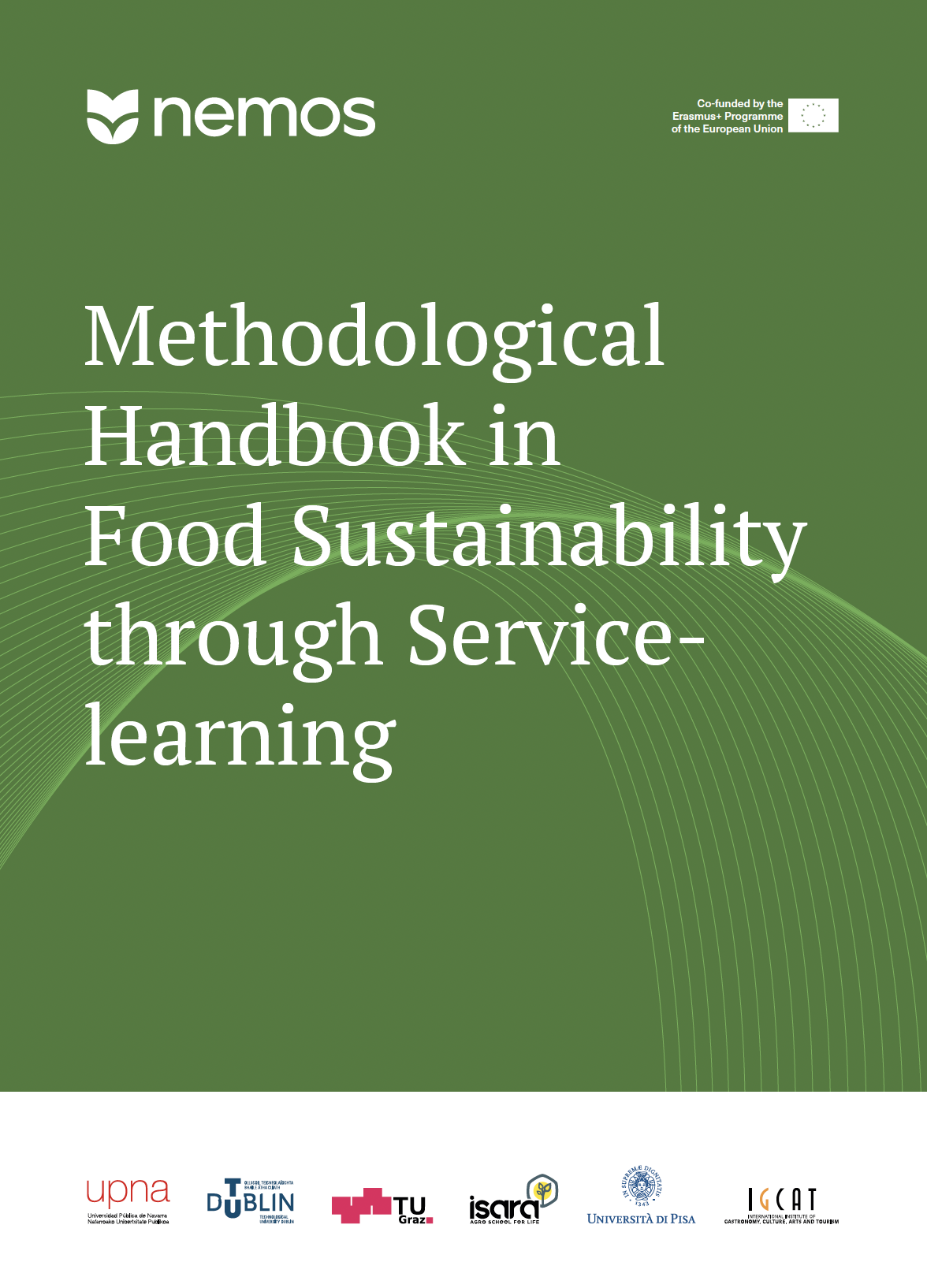Results
NEMOS is focused on defining a new educational model in which we have integrated the sustainability competences in an effective way through service learning, firstly in the field of Food-related Degrees. This will serve as a basis for application in other Degree programmes.
PR1
Food Sustainability Profile (FSP) through Community building methodology.
PR2
Methodological handbook (MH) in food sustainability through service learning.
PR3
Assessment tools for Food Sustainability Profile (FSP) and Methodological Guides (MG) by co-creation practices in service learning.
PR4
A new educational model for acquiring sustainability competences through Green pedagogy and Service Learning: Guidelines and toolbox for a Pedagogical strategy in Higher Education.
Methodological Handbook in Sustainability through Service-learning
In 2022, the project NEMOS – A New Educational Model for acquisition Of Sustainability competences through Service-learning – was launched. This EU-funded project has been implemented in collaboration and partnership with five higher education institutions in Austria (TU Graz), Ireland (TU Dublin), Italy (UNIPI), France (ISARA-Lyon) and Spain (UPNA) and aims to take a step forward in the transition towards education for sustainability through practical and innovative educational approaches and interventions.
Within the framework of the project, a collaborative process has been initiated to pool the knowledge and experience of the five higher education institutions working together to implement in practice new educational models to effectively acquire sustainability competences through Service-learning in food-based degrees. Each institution had a different educational food-based programme and started from a different baseline in terms of experience and practice in implementing sustainability through Service-learning.
NEMOS’s Methodological Handbook in Sustainability through Service-learning is the result of this joint work. It aims to bring together the key lessons learned, and the recommendations gathered throughout the process, with the objective of facilitating decision-making for teachers and higher-level educational institutions that want to start integrating or continuing to integrate and promote sustainability competences in the curricula and classroom daily practice.


